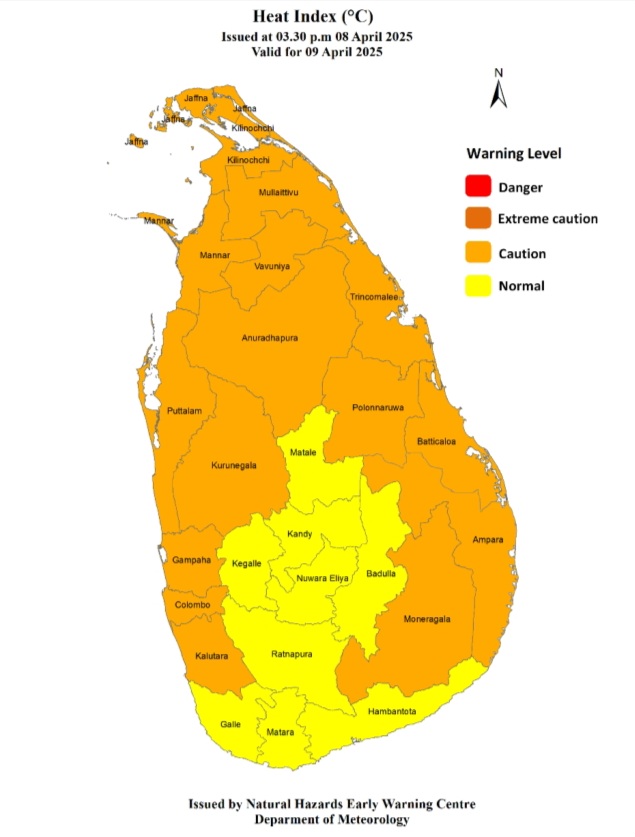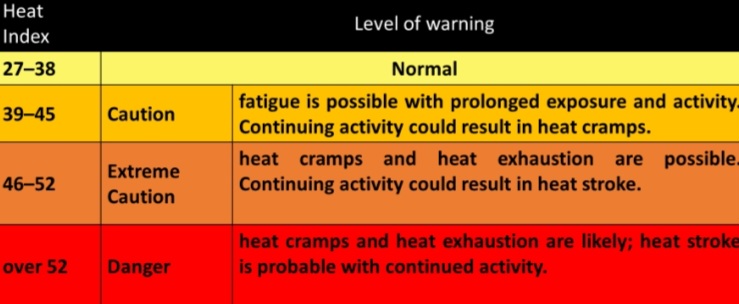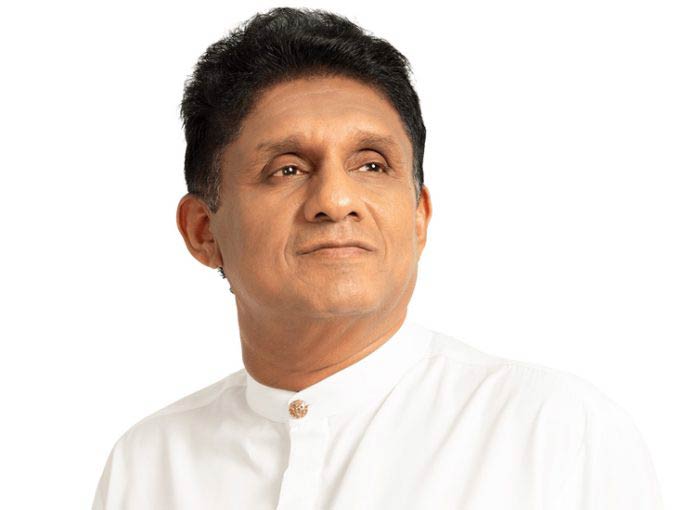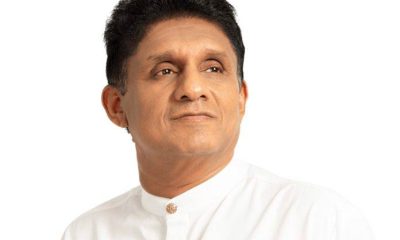News
Arrest of Lankans on terrorism charges in Gujarat: Muslim grouping renews campaign for their release

By Shamindra Ferdinando
The All Ceylon Union of Muslim League Youth Fronts (ACUMLYF) has requested K. Navas Kani, MP, of the Indian Union of Muslim League (IUML) to inquire into the high profile case of four Sri Lankans taken into custody in Gujarat on terrorism charges during the Indian general elections in May-June this year.
Identifying the four persons taken into custody on May 19 at the Ahmedabad airport as Mohammad Nusrat, Mohammad Nafran, Mohammad Rashdeen and Mohammad Faris, the grouping’s President Sham Nawaz told The Island that they were seriously concerned about the police here asking the families of the detained whether their loved ones returned home.
The newly-elected National People’s Power (NPP) should take up this issue with India at the highest level, Nawaz emphasised the responsibility on the part of India to explain the current status of the investigation as the previous Sri Lankan government, in no uncertain terms, cleared all four of any connection with ISIS, or connected with religious extremism.
Nawaz said that he also brought the matter to the notice of Prof. K. M. Cader Mohideen, President, IUML, and was confident that an effort would be made to ascertain the truth. The arrests were made by the Gujarat Anti-Terrorist Squad.
Asked whether ACUMLYF received anticipated attention from the government here, Nawaz said that they were given an opportunity to meet the then State Foreign Minister Tharaka Balasuriya in the first week of June. “In spite of assurances given, the Foreign Ministry never bothered at least to get back to us. We are quite confident that they were on business visits. And there is absolutely no basis for accusations that they were involved in religious extremism,” Nawaz said.
Responding to another query, Nawaz said that perhaps the Gujarat arrests may not receive the attention during formal talks between President Anura Kumara Dissanayake and Premier Narendra Modi this week but it shouldn’t be allowed to be forgotten under any circumstances.
“They must be either charged or released,” Nawaz said, adding that the Muslim community here shouldn’t be allowed to be targeted and humiliated over their alleged allegiance to ISIS, particularly in the wake of the 2019 Easter Sunday carnage.
Nawaz pointed out that some media reports, soon after the arrests, suggested that they arrived in India to cause mayhem during the general election.
Nawaz emphasized that their effort shouldn’t be misinterpreted as an attempt to intervene on behalf of a group dubbed as terrorists.
Sri Lanka should represent the interests of the detained persons in terms of the Vienna Convention on consular assistance.
Pointing out the conflicting claims regarding the arrests, Nawaz asked whether India gave Sri Lankan authorities access to the suspects
Asked whether the families of the detained, or some other interested party sought their intervention, or he knew them personally, Nawaz emphasized that ACUMLYE stepped-in on its own.
Nawaz said that the delegation stressed the need for an independent local investigation as many raised doubts over the continuing allegations regarding the ISIS operations here.
Such fears impacted the economy in many ways, Nawaz said, reiterating the responsibility on the part of the government to conduct no holds barred investigation into the allegations made by Indian authorities.
Contrary to repeated declarations in Indian media that the four arrested at the Sardar Vallabhai Patel airport, in Ahmedabad, had been linked to ISIS and coordinated by a Pakistani handler, investigations conducted by Sri Lankan authorities contradicted the Indian findings, Nawaz said.
Nawaz said that the recently conducted presidential and general elections caused further delays. Unfortunately, the new government, too, seemed slow on this matter hence our decision to seek the assistance of the IMUL to take up the issue at hand.
The Indian media quoted Gujarat Director General of Police Vikas Sahay as having said that the suspects told investigators that they had been earlier associated with the banned Sri Lankan radical militant outfit, National Thowheeth Jamaath (NJT), and joined IS after getting in touch with Pakistani handler Abu Bakr Al Bagdadi.
The NTJ has been blamed for the Easter Sunday attacks that claimed the lives of nearly 270, including 11 Indians. Following the arrests made by Gujarat authorities, several persons were arrested here over their alleged involvement with the four. Nawaz said that the government should set the record straight regarding the alleged Gujarat plot without further delay.
News
Heat index at ‘Caution level’ in Northern, North-central, Eastern, North-western, Western provinces and Monaragala district today [09]

The Natural Hazards Early Warning Centre of the Department of Meteorology has issued a Warm Weather Advisory for 09 April 2025
The public are warned that the Heat index, the temperature felt on human body is likely to increase up to ‘Caution level’ at some places in Northern, North-central, Eastern, North-western, and Western provinces and in Monaragala district.
The Heat Index Forecast is calculated by using relative humidity and maximum temperature and this is the condition that is felt on your body. This is not the forecast of maximum temperature. It is generated by the Department of Meteorology for the next day period and prepared by using global numerical weather prediction model data.
Effect of the heat index on human body is mentioned below is prepared on the advice of the Ministry of Health and Indigenous Medical Services.

ACTION REQUIRED
Job sites: Stay hydrated and takes breaks in the shade as often as possible.
Indoors: Check up on the elderly and the sick.
Vehicles: Never leave children unattended.
Outdoors: Limit strenuous outdoor activities, find shade and stay hydrated. Dress: Wear lightweight and white or light-colored clothing.
Note:
In addition, please refer to advisories issued by the Disaster Preparedness & Response Division, Ministry of Health in this regard as well. For further clarifications please contact 011-7446491.
News
Sajith asks govt. to submit its MoUs with India to Parliament

Prof. Jayasumana raises possibility of Lanka ending up with “Quad’
Opposition and SJB Leader Sajith Premadasa has said it is the responsibility of the NPP government to submit the MoUs/agreements that were recently signed with India to the respective Sectoral Oversight Committees (SOCs).
Premadasa said so when The Island raised the issue with him. He said that during his meeting with Premier Modi his focus had been on opening the Indian market for Sri Lankan garment exports.
The seven MoUs/agreements signed on 05 April included defence cooperation, energy, Eastern Province development and digitalisation.
Meanwhile, the Vice President of Sarvajana Balaya and former lawmaker Prof. Channa Jayasumana said that the government owed an explanation whether the recently signed MoU on defence cooperation directly or indirectly attached Sri Lanka to the Quad security alliance, consisting of the US, Australia, Japan and India.
 The former SLPPer raised the issue at a meeting held at Boralesgamuwa on Monday (07) in support of Sarvajana Balaya candidates contesting the May 6 LG polls.
The former SLPPer raised the issue at a meeting held at Boralesgamuwa on Monday (07) in support of Sarvajana Balaya candidates contesting the May 6 LG polls.
Prof. Jayasumana urged that the MoU on Defence Cooperation be placed before Parliament, and the people, without further delay. The academic who served as State Health Minister during President Gotabaya Rajapaksa’s tenure said that President Anura Kumara Dissanayake’s foreign policy direction should be dealt with.
By Shamindra Ferdinando
News
Govt. won’t extend suspension of ‘parate executions’

The government would not extend the suspension of ‘parate executions’ that was now effective, Deputy Minister of Finance Harshana Suriyapperuma told Parliament yesterday.
Suriyapperuma said so in response to a question raised by Opposition Leader Sajith Premadasa, who asked about the government’s plans regarding a relief package to assist small and medium-scale enterprises (SMEs) struggling to repay loans.
Pointing out that about 263,000 SMEs had closed down, Premadasa asked what action the government would take to address the grievances of these SMEs.
He said that from 01 Jan., 2019, to 01 Dec., 31, 2023, licensed banks had collected Rs. 113.7 billion through 2,263 parate executions. As of 31 Dec., 2024, Rs. 1,380 billion had been recovered from Stage III defaulters.
The government has introduced loan schemes to assist SMEs impacted by the economic crisis. They included capital loans of up to Rs. 10 million, with a six-month grace period and a three-year repayment term at 8% interest, Suriyapperuma said. Additionally, another loan scheme under the consolidated fund aimed to help SMEs that werecurrently paying their loans. That scheme offered loans of up to Rs. 15 million, which must be repaid over ten years with a one-year grace period and a 7% interest rate. For SMEs that had defaulted on their loans, a loan of up to Rs. 5 million is available at 8% interest, with a six-month grace period and a five-year repayment term, Suriyapperuma said.
By Saman Indrajith
-

 Business2 days ago
Business2 days agoColombo Coffee wins coveted management awards
-

 Business4 days ago
Business4 days agoDaraz Sri Lanka ushers in the New Year with 4.4 Avurudu Wasi Pro Max – Sri Lanka’s biggest online Avurudu sale
-

 Features3 days ago
Features3 days agoStarlink in the Global South
-

 Business5 days ago
Business5 days agoStrengthening SDG integration into provincial planning and development process
-

 Business4 days ago
Business4 days agoNew SL Sovereign Bonds win foreign investor confidence
-

 Sports6 days ago
Sports6 days agoTo play or not to play is Richmond’s decision
-

 Features3 days ago
Features3 days agoModi’s Sri Lanka Sojourn
-

 Sports5 days ago
Sports5 days agoNew Zealand under 85kg rugby team set for historic tour of Sri Lanka





















